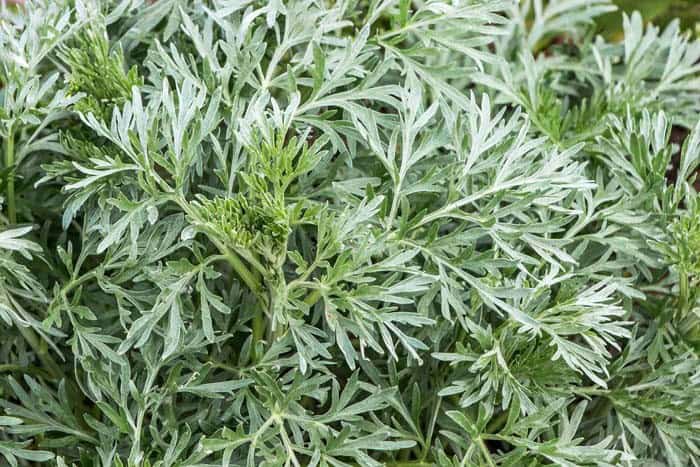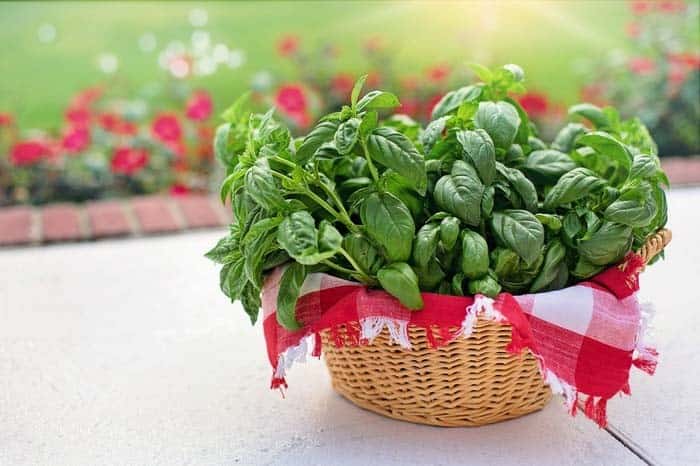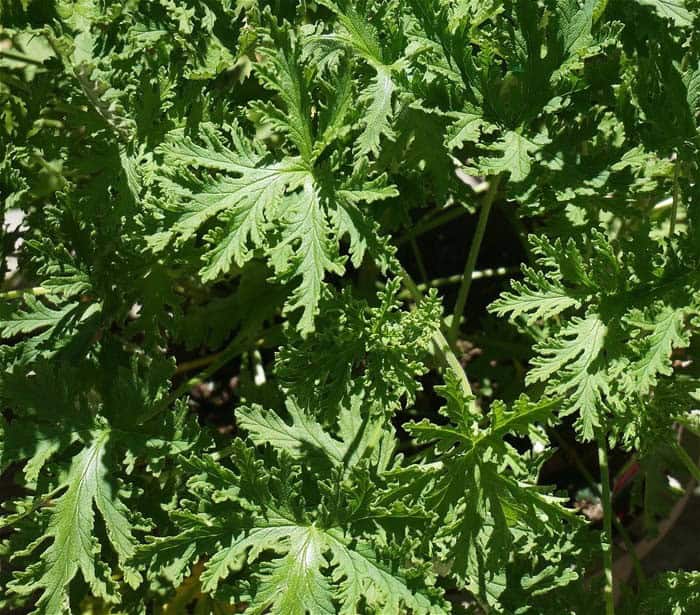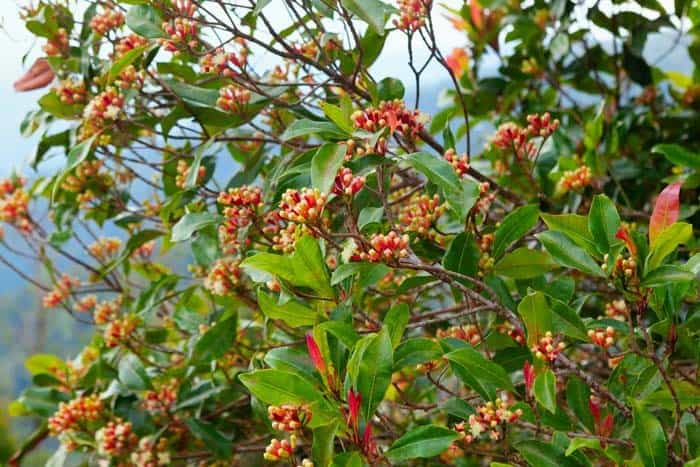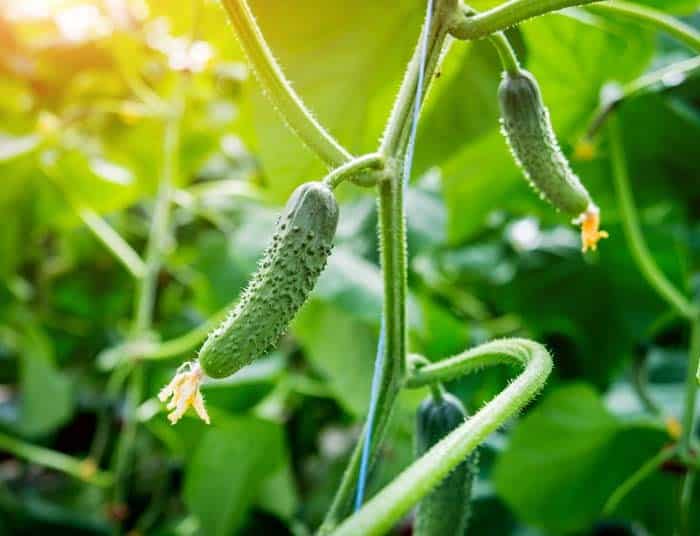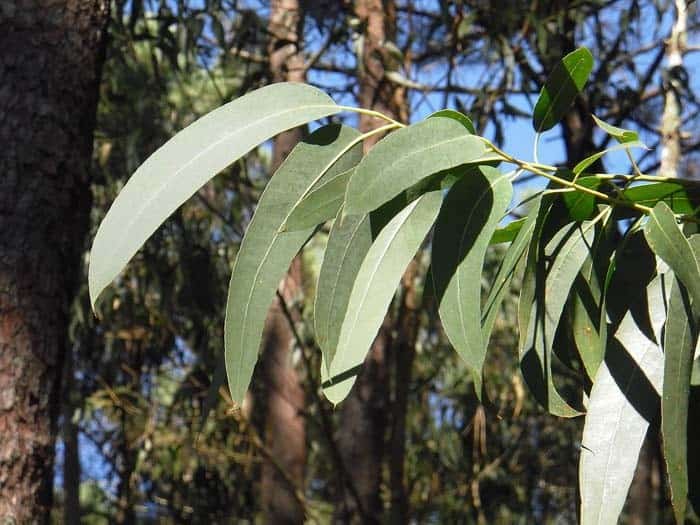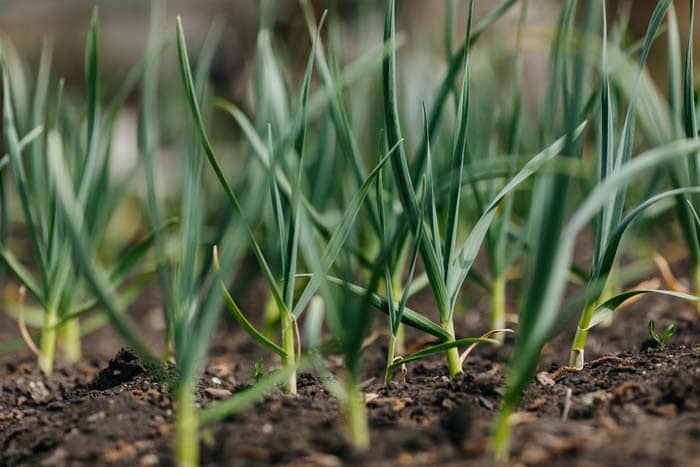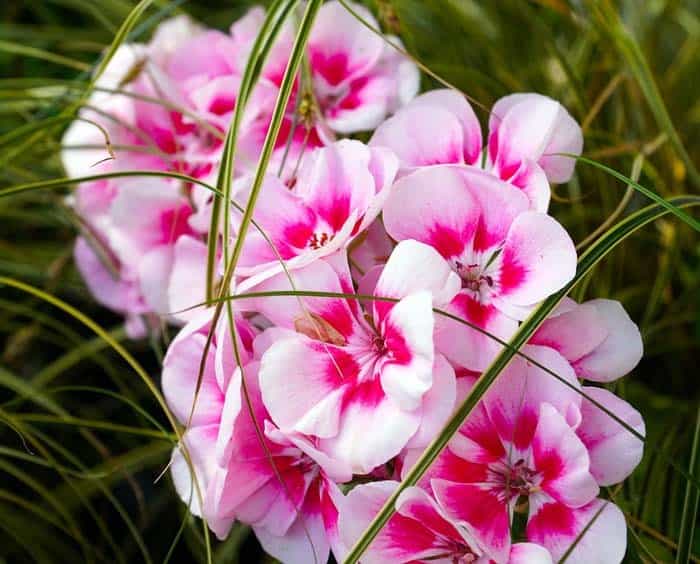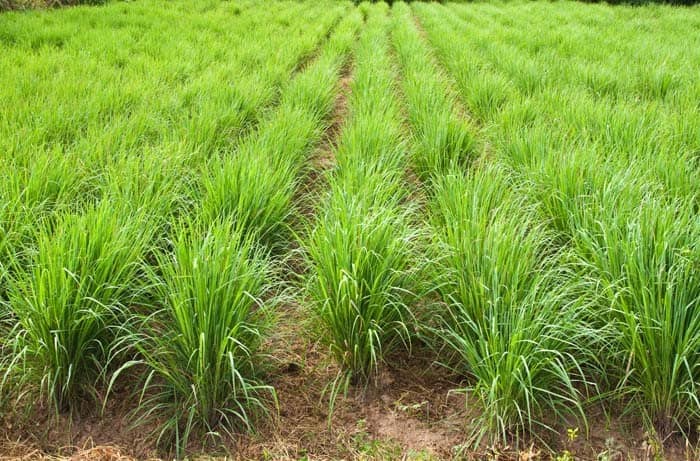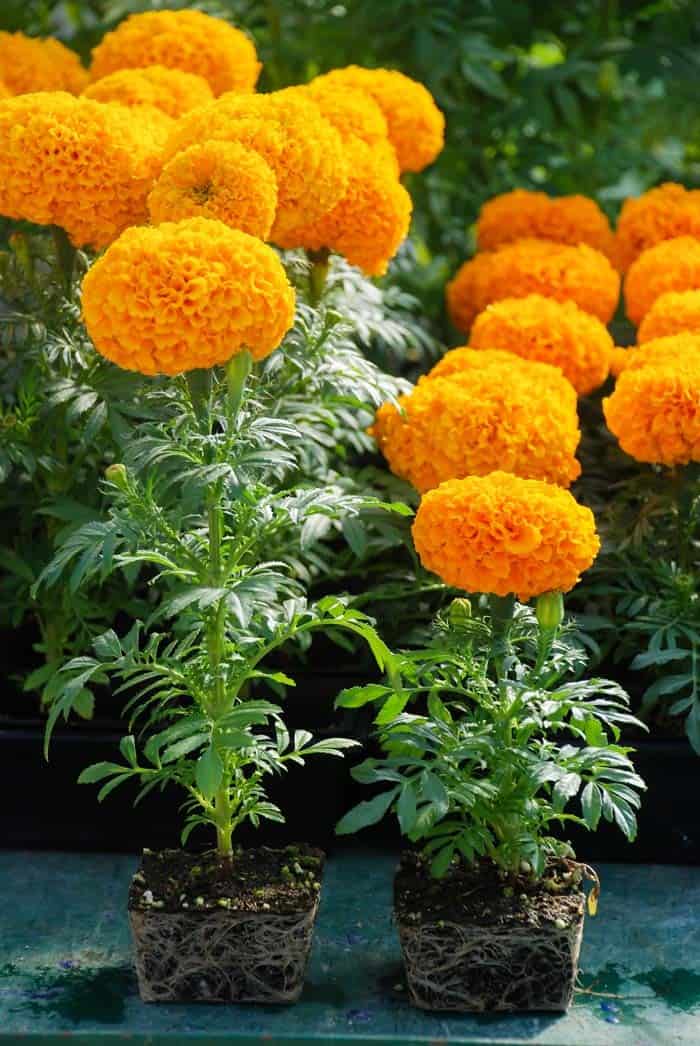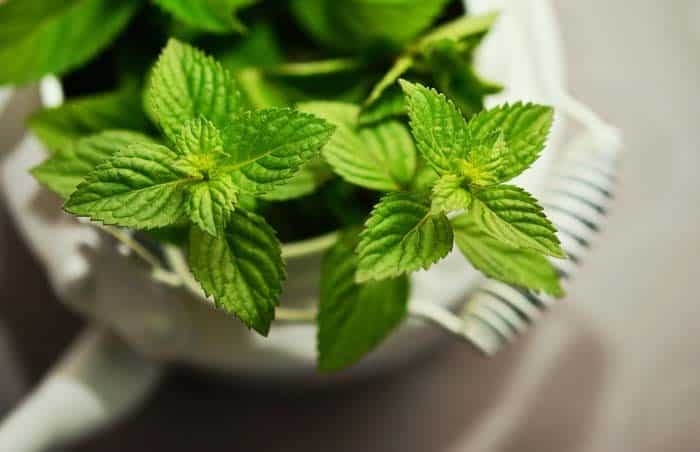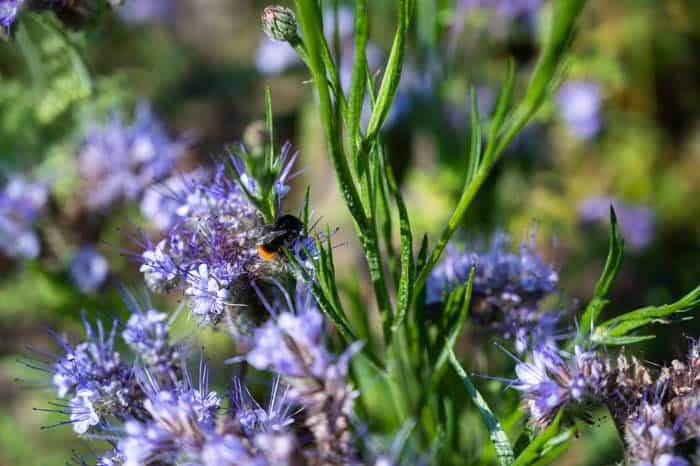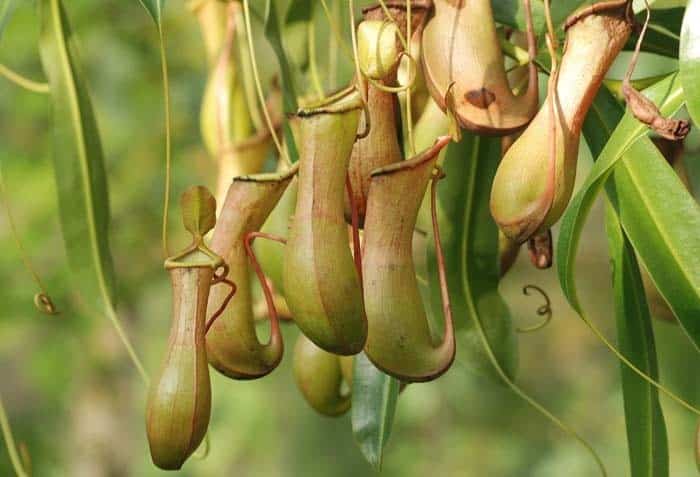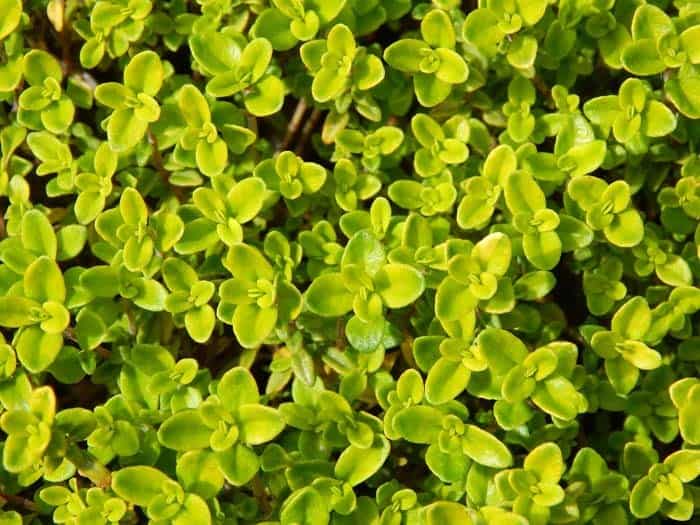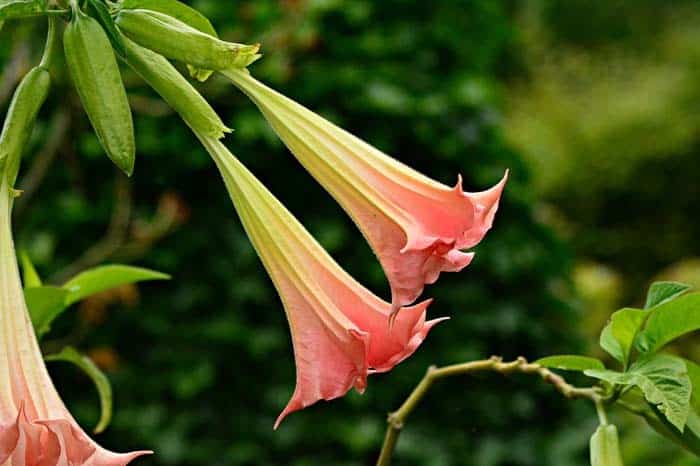In many ways, wasps are an integral component of the natural world, but their presence in our gardens can be a significant nuisance. When threatened or disturbed, they can become quite aggressive, posing a risk of painful stings to unsuspecting individuals. Fortunately, there are certain plants that have been shown to effectively repel these unwanted visitors, allowing us to enjoy our outdoor spaces without the need for harsh chemical pesticides.
Basil
As you prepare to cultivate your garden, consider adding basil as a great addition. Not only will its pungent aroma repel wasps and keep your salads fresh and flavorful, but it’s also surprisingly low-maintenance. Whether planted directly in the earth or grown in containers, basil thrives with minimal effort. In fact, if you choose to grow yours in pots, you can easily bring them inside during the winter months to enjoy a year-round harvest.
Citronella
Citronella candles are a familiar sight in many stores, but have you ever wondered how they’re made? The answer lies in the oils extracted from the citronella plant, which is notorious for its potent citrus scent that repels wasps and mosquitoes. When these insects catch a whiff of the aroma emanating from the leaves, they’re quick to buzz off, leaving your garden a more peaceful place.
Growing citronella is a cinch, making it an excellent choice for novice gardeners looking to keep their outdoor spaces wasp-free. As long as the soil drains well and you reside in zones 8-12, this hardy plant should thrive in your garden. And if you’re eager to get a head start, you can even begin growing citronella indoors and transplant it outside after the last frost has passed.
Cloves
The clove plant boasts a unique combination of strength and subtlety. While its potent aroma effectively repels wasps, it’s relatively mild to human senses, leaving behind only a hint of warm spice. The plant itself is striking, featuring bright green leaves with vibrant red accents that add visual appeal to any garden. As the clove grows, pruning becomes essential to maintain a manageable size, especially in smaller gardens.
Once mature, harvest a few stems and dry them for future use in festive drinks and baking traditions.
Cucumber
The humble cucumber’s mild flavor belies its surprising ability to repel wasps. The secret lies in the peels, which contain bitter compounds that overwhelm these pests. This natural defense mechanism makes cucumbers an ideal addition to any garden. Not only will they add freshness to your salads, but they’ll also provide a natural barrier against unwanted visitors.
With their ease of growth and requirement for full sun, cucumbers are a low-maintenance yet high-impact addition to your outdoor space.
Eucalyptus
Imagine taking a moment to appreciate the pungent scent of eucalyptus leaves. While people often find this aroma pleasing, wasps and other pesky insects are repelled by its potency. This potent effect is attributed to the essential oils present in the leaves, which serve as a natural deterrent against unwanted visitors like wasps, ticks, mosquitoes, and more.
Interestingly, despite being native to Australia, eucalyptus trees can thrive in zones ranging from 7A to 10, making them a fantastic choice for gardeners looking to get started quickly. With its rapid growth rate, this tree is an excellent option for those seeking to fill their outdoor spaces with lush greenery and natural charm.
Garlic
Garlic’s pungent aroma is unmistakable, making it a staple in many recipes where its bold flavor can truly shine. But did you know that this potent plant has another trick up its sleeve? When grown alongside other greens, garlic emits a fragrance that repels an impressive array of insects, from wasps and beetles to mites and mosquitoes. As the pests take flight, you’ll be left with a garden teeming with life, free from the nuisance of unwanted visitors.
And when the time is right, simply harvest those garlic bulbs to elevate your cooking game.
Geraniums
While geraniums may seem like a magnet for wasps with their bright and vibrant colors, the reality is that these flowers actually repel them. In fact, wasps tend to avoid geraniums altogether. However, it’s worth noting that geraniums also have the unfortunate effect of repelling bees – a key consideration when designing your garden. To promote a healthy bee population, consider planting geraniums away from areas where you want to attract these important pollinators.
Despite this drawback, geraniums are a great choice for many gardens due to their ability to thrive in partial sunlight, making them well-suited to placement near porches or along borders. The cheerful color and medium-sized blooms of geraniums are sure to add a pop of personality to any space.
Lemongrass
For a natural and effective way to keep unwanted insects at bay, look no further than lemongrass. This citrus-herb wonder has a strong scent that deters wasps and mosquitoes from invading your outdoor space. By incorporating lemongrass into your garden design, you can enjoy the great outdoors without worrying about pesky stings. To make maintenance a breeze, simply plant lemongrass in containers.
And if you live in an area with cool winters, don’t worry – bring the plants inside to thrive year-round.
Marigolds
Infuse your garden with the warm glow of marigolds, boasting thick, layered petals and radiant yellow hues that instantly uplift any space. As you cultivate these sun-kissed blooms, you’ll inadvertently create a wasp-repellent haven, as these flying pests show little interest in the vibrant flowers. Meanwhile, the marigolds will attract a diverse array of beneficial insects, such as busy bees and ladybugs, which call your garden home.
Plus, with their low-maintenance requirements, you won’t need to worry about adding more tasks to your gardening repertoire.
Mint
Mint offers a natural and effective way to deter wasps and other unwanted insects with its invigorating aroma. The best part is that you don’t need a large, sun-drenched yard to grow this versatile herb – it thrives in shady spots, providing you with the flexibility to cultivate it even in small spaces. As your mint plant matures, you’ll be able to harvest its leaves and incorporate them into a variety of dishes, from refreshing cocktails to healthy salads.
With mint on hand, you may find yourself skipping the grocery store altogether!
Pennyroyal
For homeowners with small gardens, the pennyroyal plant is an ideal solution for deterring wasps. Its compact nature makes it well-suited for container gardening, allowing you to place it on a porch, patio, or even a small city balcony. The essential oils produced by this herb have a potent fragrance that repels unwanted insects. However, it’s crucial to exercise caution when using pennyroyal, as its oil can be toxic if ingested, making it essential to keep out of reach of children and pets.
Pitcher Plant
Looking to add a unique touch to your garden while also repelling wasps? The pitcher plant is an intriguing option. Its unusual, pitcher-like blooms will transport you to a tropical paradise. But beware – these exotic flowers aren’t just a pretty sight; they’re actually a clever trap for wasps. Once the pesky insects fly down into the narrow mouth of the flower, they become stuck and eventually broken down by natural enzymes within the plant’s tissues.
The end result is a stunning display of warm orange and yellow hues, accompanied by delicate vines that add to the overall charm.
Thyme
For cooks who detest wasps, thyme is a savior in more ways than one. Not only do its fragrant leaves repel these pesky insects, but they also make for a delicious addition to a variety of dishes. To bring this beneficial herb into your kitchen, head to a local nursery and pick up a few thyme plants. With their minimal care requirements, you’ll be enjoying the flavor and fragrance of fresh thyme in no time.
When planting thyme, seek out a spot that receives plenty of direct sunlight.
While it does require some attention during its first growing season, thyme is generally a low-maintenance option once established.
Trumpet Flowers
While many people assume that flowers attract wasps and bees, the trumpet flower is an anomaly that defies this expectation. The unique chemical composition of its leaves acts as a natural deterrent for flying insects, allowing you to enjoy the vibrant blooms without the risk of stings. In addition, the downward-facing petals are long and deep, making it difficult for bees to access the nectar within.
This makes trumpet flowers an excellent choice for standalone planters in your garden or hanging containers on your porch or deck, providing a pop of color while keeping wasps at bay.
Wormwood
Transform underutilized spaces around your garden with the versatile wormwood plant. Its delicate, branching leaves provide a charming groundcover that also keeps unwanted pests at bay. The secret to its effectiveness lies in its potent flavor and aroma, which wasps, mosquitoes, and flies find particularly unappealing. Additionally, wormwood can serve as a natural deterrent for deer and rabbits seeking to nibble on your garden’s bounty.
To avoid inadvertently hindering the growth of nearby fruits and vegetables, be sure to plant it at a suitable distance. Wormwood flourishes in USDA zones 4-8, making it an ideal choice for many gardeners.
